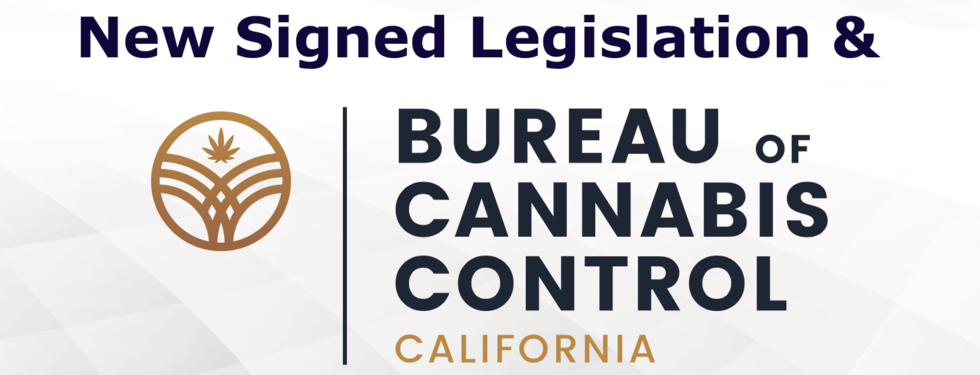It’s been over a month now since the Legislature was last in session. State elected officials are back in their districts working with their constituents on local projects and legislation for 2018, and the governor has been busy reviewing the hundreds of bills that hit his desk in September. With a stroke of his pen, Governor Brown has helped protect canna-businesses and make positive advances for the industry.
New Signed and Vetoed Cannabis Legislation
In 1996, California voters approved Proposition 215 and expressed their desire to ensure that cannabis patients and their primary caregivers are not subject to criminal prosecution or sanction. Fast forward 21 years, after countless people have faced criminal charges for their use of cannabis, Governor Brown has signed Assemblymember David Chiu’s (D-San Francisco) AB 1159, legislation that will finally protect attorney-client privilege for cannabis businesses. For more information on this important issue, see Manzuri Law’s great backgrounder on AB 1159. Senators Holly Mitchell (D-Los Angeles) and Ricardo Lara (D-Bell Gardens) made huge progress in the war on drugs with the signing of SB 180, also known as the Repeal Ineffective Sentencing Enhancements (RISE) Act. The new law repeals sentencing enhancements that add three-year incarceration terms for each prior nonviolent drug convictions, including petty drug sales and possession of drugs for sales. The RISE Act was part of an 11-bill package on criminal justice reform that was signed by Governor Brown in an effort to improve the state’s criminal and juvenile justice systems, restore the power of judges to impose criminal sentences, and reduce recidivism.
Although it was heavily opposed by law enforcement, the RISE Act was strongly supported by dozens of racial and social advocacy organizations. Finally, AB 208 by Assemblymember Susan Eggman (D-Stockton) was approved, changing the existing post-plea system for qualified drug possession offenders to a pre-plea system. The law will now allow eligible defendants to have their charges dismissed upon successful completion of an education and treatment program prior to their conviction, as opposed to potentially facing federal consequences. All three laws will go into effect on January 1, 2018.
Governor Brown also helped protect California by vetoing overreaching legislation. AB 350 (Salas) would have banned businesses from making cannabis products in the shape of a person, animal, insect, or fruit. Brown cited conflicts with the Medicinal and Adult Use Regulation and Safety Act as his reasoning for the veto. The bill was presumably introduced to ensure cannabis products are not attractive to children; however, given that the state’s regulations are yet to be finalized, one could argue that we should wait to legislate this area until we find out what the agencies set as rules. AB 725 (Levine) and SB 386 (Glazer) would have made it an infraction for a person to smoke any product on a state coastal beach or park. Writing nearly identical veto messages, the governor emphasized that there should be a limit to the government’s power, and that the mandate was too broad. AB 1120 (Cooper), a bill requiring the reporting for the sale of nonodorized butane, was also shot down, with concerns about the expense of implementation and putting unnecessary burden on non-cannabis industries.
California Cannabis Regulations and the Bureau of Cannabis Control
On the regulatory side, everyone is waiting with bated breath for the final regulations to come out from the three licensing agencies. Hopefully the wait is almost over, as Lori Ajax has publicly stated that they will be out in mid to late November. In the meantime, the agencies have been putting on licensing workshops to help the public understand what information and resources will be necessary to apply for state commercial licenses. If you missed them, fear not. Many people who tried to attend were unable to get see the presentation as there was significantly more interest in them than there were seats available. As you can see from footage of the Riverside workshop, the forum was used to announce information now available on their websites on anticipated license application requirements and general licensing information. The biggest news is about temporary state licenses, which the state agencies are hoping to start issuing on January 1, 2018. They expect to begin accepting applications for them starting in December of this year. Effective on January 1, temporary licenses will allow businesses to conduct commercial cannabis activity for 120 days and are only valid if the applicant has valid local approval prior to applying. For more information, refer to the list below.
- CalCannabis Cultivation License Application Checklist
- CalCannabis Temporary License Application Information
- Bureau of Cannabis Control Anticipated License Application Requirements
- Bureau of Cannabis Control Licensing Information
- Bureau of Cannabis Control Temporary License Application Information
Now that the state has given some confirmation of the information that will be required for applicants, it is vital that businesses that already have local approval get their paperwork in order so that they can get in line early for temporary licenses. For those still working towards their local approval, don’t stop! This information is still going to be necessary to obtain for a coveted state license; but while it is great to get this paperwork in order now if you have the bandwidth, gaining local approval should still be the primary focus for the time being. Yes, the pathway to regulation has been rocky and long so far, but hang in there! 2018 – and full implementation of California’s legal medical and adult use cannabis market – is right around the corner.
Disclaimer: This article has been prepared and published for informational purposes only and is not offered, nor should be construed, as legal advice.

